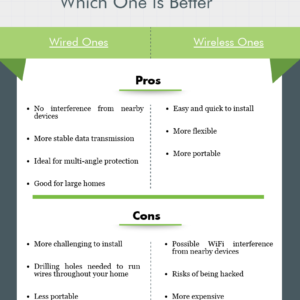Wondering how wireless security systems stack up against wired systems when it comes to reliability and performance? Well, you’ve come to the right place! In this article, we’ll break down the key differences and similarities between these two types of security systems. Whether you’re considering upgrading your existing security system or looking to install a new one, this information will help you make an informed decision.
Curious to know which type of security system is more reliable and offers better performance? Look no further! In our upcoming article, we’ll explore the pros and cons of wireless and wired security systems, and delve into their reliability and performance capabilities. You’ll learn about the factors to consider when choosing a security system, as well as the benefits and limitations of each type. By the end of the article, you’ll have a clearer understanding of which system is best suited for your security needs. So stay tuned!
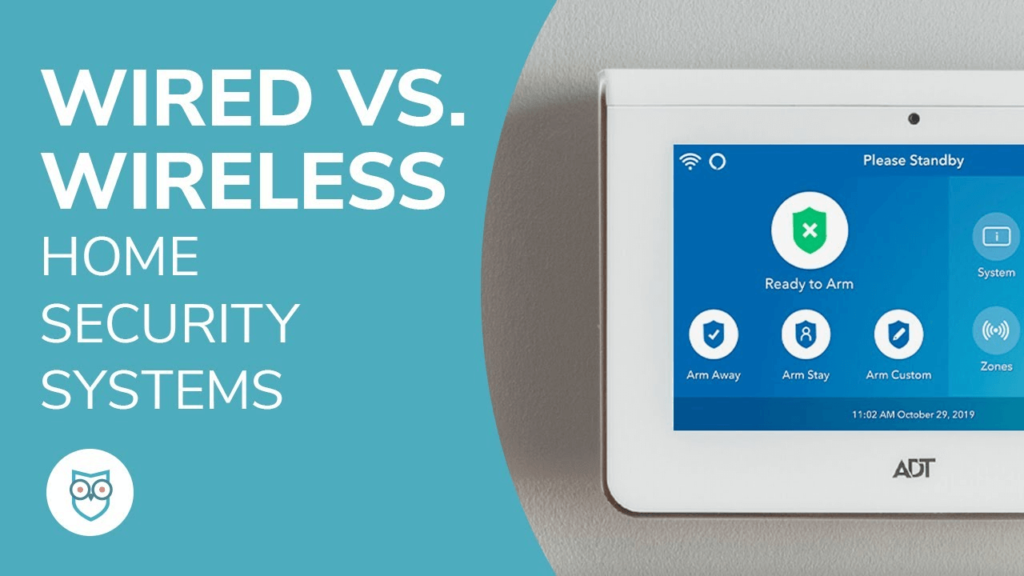
This image is property of www.safewise.com.
Overview of Wireless Security Systems
Explanation of wireless security systems
Wireless security systems utilize wireless technology to connect various sensors, cameras, and control panels to provide protection for homes, businesses, and other properties. These systems rely on radio waves to transmit data, allowing for convenient installation and flexibility in sensor placement. Unlike wired systems, wireless security systems do not require extensive wiring, making them easier to install and maintain.
Advantages of wireless security systems
One of the major advantages of wireless security systems is their ease of installation. Since they do not require any physical wiring, homeowners can easily set up the system themselves without the need for professional assistance. This not only saves time but also reduces the overall cost of installation.
Another advantage is the flexibility in sensor placement. With wireless systems, sensors can be placed in various locations without the limitation of wired connections. This allows for better coverage and increased security, as sensors can be strategically placed to monitor entry points, windows, and other vulnerable areas.
Wireless security systems also offer the convenience of remote monitoring. With the use of mobile apps or web interfaces, homeowners can access their security system from any location with an internet connection. This provides them with real-time updates, the ability to view live camera feeds, and the option to arm or disarm the system remotely.
Disadvantages of wireless security systems
Despite their advantages, wireless security systems also have some drawbacks. One of the main concerns is the potential for signal interference. Since these systems rely on wireless communication, they can be affected by factors such as distance, obstacles, and other wireless devices in the vicinity. This interference can result in loss of signal and decreased system reliability.
Another disadvantage is the reliance on batteries. Unlike wired systems, wireless security systems require batteries to power the sensors and control panels. This means that homeowners need to regularly monitor and replace batteries to ensure that the system functions properly. Failure to do so may lead to a temporary security lapse.
Additionally, wireless systems may be more susceptible to hacking and unauthorized access compared to wired systems. As wireless signals can be intercepted, it is crucial to ensure that the system is properly encrypted and secure. Homeowners should also regularly update their system’s firmware to protect against potential vulnerabilities.
Overview of Wired Security Systems
Explanation of wired security systems
Wired security systems, on the other hand, utilize physical cables to connect the various components of the security system. This includes wired sensors, cameras, and control panels that are hardwired to a central hub or monitoring station. These systems have been used for decades and are known for their reliability and stability.
Advantages of wired security systems
One of the main advantages of wired security systems is their reliability. Since these systems use physical cables, they are less susceptible to signal interference compared to wireless systems. This ensures that the system maintains a consistent and stable connection, reducing the risk of false alarms or missed events.
Wired systems also provide a higher level of security, as they are not vulnerable to wireless signal interception. Since the communication is physically restricted to the cables, it is significantly harder for intruders to hack or disrupt the system. This makes wired systems an attractive option for individuals concerned about cybersecurity.
Additionally, wired security systems do not rely on batteries for power. This eliminates the need for regular battery replacements and ensures that the system is always functioning at its optimal capacity. This can be particularly advantageous for individuals who value a low-maintenance security solution.
Disadvantages of wired security systems
One of the major disadvantages of wired security systems is the complexity and cost of installation. Unlike wireless systems, wired systems require extensive wiring throughout the property, which can be time-consuming and expensive. Professional assistance is often needed to ensure proper installation and wiring, further adding to the cost.
Another drawback is the lack of flexibility in sensor placement. Since wired sensors are connected via physical cables, they are limited in terms of location options. This may result in gaps in coverage or difficulty in installing sensors in hard-to-reach areas. Homeowners should carefully plan and strategize the placement of wired sensors to ensure optimal security coverage.
Wired systems also lack the convenience of remote monitoring that wireless systems offer. While some wired systems may have the option for remote access, it is typically not as seamless or user-friendly as wireless systems. This may be a drawback for individuals who prioritize easy accessibility and control.
Reliability of Wireless Security Systems
Evaluation of reliability in wireless systems
The reliability of wireless security systems can vary depending on various factors. One of the key factors is the strength and stability of the wireless signal. If the signal strength is weak or unstable, it may result in intermittent communication between the sensors, control panels, and monitoring station. This can lead to false alarms or missed events, compromising the overall reliability of the system.
Another factor that affects reliability is the distance between the sensors and the control panel. If the distance is too far, it may weaken the signal and decrease the reliability of the system. In large properties or buildings with multiple floors, signal extenders or repeaters may be needed to ensure proper communication and reliable operation of the wireless security system.
Factors affecting reliability in wireless systems
In addition to signal strength and distance, other factors can impact the reliability of wireless security systems. One such factor is radio frequency interference. Since wireless systems operate on specific frequencies, interference from other wireless devices or electronics can disrupt the signal and affect the system’s reliability. This can include devices such as cordless phones, Wi-Fi routers, or even microwaves.
The physical environment can also play a role in the reliability of wireless systems. Thick walls, metal structures, or other obstacles can obstruct the wireless signal, resulting in reduced reliability. It is important to consider these physical limitations when planning the installation of wireless security systems to ensure optimal performance.
Comparison of reliability between wireless and wired systems
While wireless security systems have made significant advancements in terms of reliability, wired systems still tend to have an edge in this aspect. Wired systems provide a more stable and consistent connection, as they are not susceptible to signal interference or environmental factors. This means that wired systems are less likely to experience false alarms or communication failures, enhancing their overall reliability.
However, with proper planning, installation, and regular maintenance, wireless systems can achieve a level of reliability that meets the needs of most homeowners. By addressing potential signal interference, optimizing sensor placement, and ensuring a strong wireless signal, homeowners can enhance the reliability of their wireless security system.
Performance of Wireless Security Systems
Evaluation of performance in wireless systems
The performance of wireless security systems encompasses various aspects, including the speed of communication, responsiveness, and overall effectiveness in detecting and deterring intrusions. The performance of wireless systems depends on factors such as signal strength, sensor sensitivity, and the speed at which the system processes and reacts to events.
Factors affecting performance in wireless systems
Signal strength plays a crucial role in the performance of wireless security systems. Strong and stable signals ensure that the sensors can effectively communicate with the control panel and monitoring station. Weak signals can result in delayed or missed events, reducing the system’s effectiveness in detecting and responding to potential threats.
Sensor sensitivity is another important factor. Sensors need to accurately detect and differentiate between normal events, such as a pet moving around, and actual security breaches. Overly sensitive sensors can lead to false alarms, which can be inconvenient and may result in homeowners disregarding genuine security threats. Finding the right balance of sensitivity is key to the performance of wireless security systems.
The speed at which the system processes and reacts to events is critical for effective security. In wireless systems, the time it takes for the sensors to transmit signals to the control panel, and for the control panel to communicate with the monitoring station, can impact the system’s performance. Delays in communication can result in slower response times, potentially giving intruders more time to carry out their activities.
Comparison of performance between wireless and wired systems
In terms of performance, wired systems traditionally have an advantage over wireless systems. Wired systems tend to have faster and more reliable communication, reducing response times and increasing the effectiveness of the security system. This is particularly important in situations where immediate action is required, such as in the event of a break-in or fire.
However, advancements in wireless technology have greatly improved the performance of wireless security systems. With faster wireless communication protocols and improved sensor technology, wireless systems can now provide comparable performance to their wired counterparts. In many cases, the difference in performance between wireless and wired systems may not be noticeable to the average homeowner.
It is important for individuals considering a wireless security system to carefully research and select a system with a proven track record of reliable and high-performance. Reading customer reviews, consulting with security professionals, and seeking recommendations can help guide homeowners towards wireless systems that meet their performance expectations.
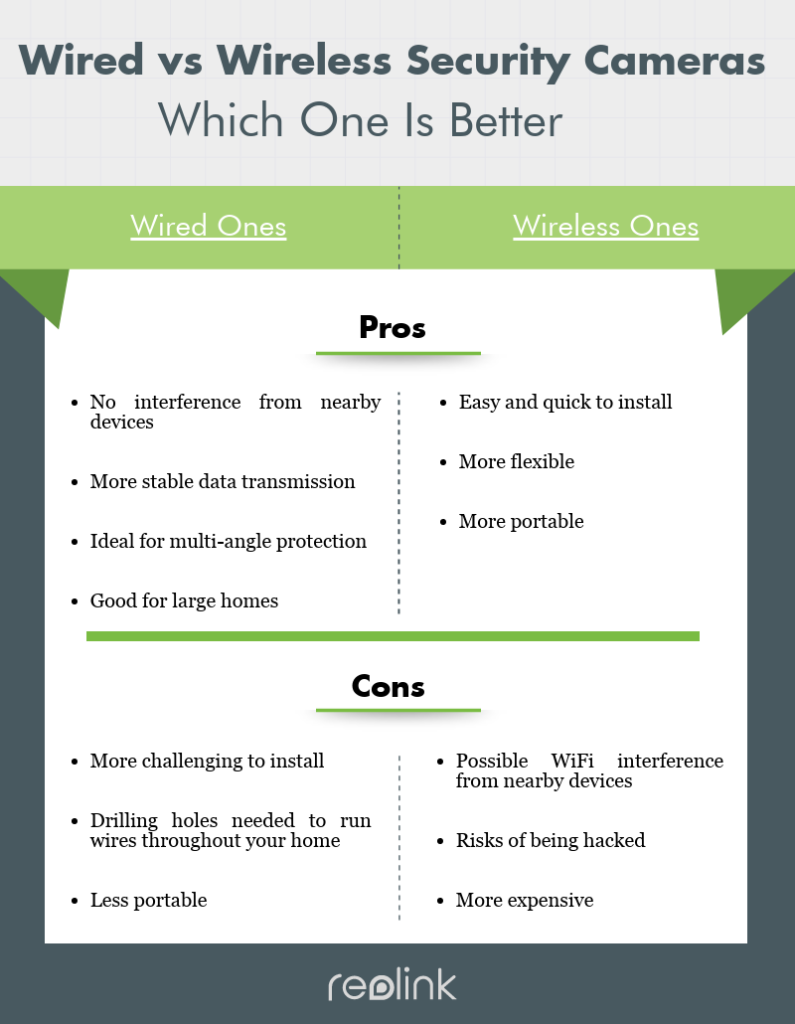
This image is property of home-cdn.reolink.us.
Comparative Analysis of Reliability
Discussion on the reliability of wireless systems
Wireless security systems have made significant advancements in terms of reliability in recent years. Through improved wireless technologies, such as Zigbee or Z-Wave, wireless systems can maintain reliable connections and provide consistent security coverage. Additionally, manufacturers often implement measures to address signal interference and enhance the overall reliability of their wireless security systems.
However, it is important to note that wireless systems are still inherently more susceptible to signal interference compared to wired systems. Factors such as distance, obstacles, and other wireless devices can affect the reliability of wireless signals. Homeowners should take these factors into consideration when planning the installation of a wireless security system to ensure optimal reliability.
Discussion on the reliability of wired systems
Wired security systems have long been regarded as reliable due to their physical connections and lack of interference vulnerability. Wired systems provide consistent and stable connections, ensuring that signals are reliably transmitted between the various components of the security system. This reduces the likelihood of false alarms or missed events, enhancing the overall reliability of the system.
However, wired systems are not completely immune to reliability issues. Physical damage to cables, such as cuts or breaks, can disrupt the connection and compromise the reliability of the system. Regular maintenance and inspection of the wiring are essential to ensure the continued reliability of wired security systems.
Comparison of reliability between wireless and wired systems
When comparing the reliability of wireless and wired security systems, it is clear that wired systems have historically been more reliable due to their lack of signal interference and physical connections. Wired systems provide a stable and consistent connection, reducing the risk of communication failures or false alarms.
Wireless systems, on the other hand, have typically been associated with higher potential for signal interference and reliance on external factors such as signal strength and environmental obstacles. However, with advancements in wireless technology, wireless systems have significantly improved their reliability and can now offer comparable performance to wired systems.
Ultimately, both wireless and wired security systems can be reliable if properly installed, maintained, and optimized for the specific property and usage. Homeowners should carefully consider their security needs, budget, and preferences when choosing between wireless and wired systems, taking into account the reliability of each option.
Comparative Analysis of Performance
Discussion on the performance of wireless systems
The performance of wireless security systems has greatly improved over the years. With faster wireless communication protocols and enhanced sensor technology, wireless systems can now offer reliable and highly responsive security solutions. Wireless systems are capable of providing real-time updates, instant notifications, and seamless integration with other smart home devices.
Wireless systems also offer the convenience of remote access and control. Through mobile apps or web interfaces, homeowners can easily monitor their security system, view live camera feeds, and arm or disarm the system from anywhere with an internet connection. This level of accessibility and control enhances the overall performance and usability of wireless security systems.
Discussion on the performance of wired systems
Wired security systems have long been known for their performance and reliability. The physical connections between the various components of the system ensure fast and consistent communication, minimizing response times and maximizing effectiveness in detecting and deterring security threats.
Wired systems also tend to have faster processing and reaction times compared to wireless systems. This is particularly important in situations where immediate action is required, such as in the event of a break-in or fire. The reliability and stability of wired systems contribute to their exceptional performance and ability to provide rapid response and protection.
Comparison of performance between wireless and wired systems
When comparing the performance of wireless and wired security systems, it is important to consider the specific needs and priorities of the homeowner. Wired systems have traditionally been regarded as offering superior performance due to their reliability and speed of communication.
However, wireless systems have significantly improved in terms of performance, with faster wireless communication protocols and advanced sensor technology. Wireless systems now offer comparable performance to wired systems, particularly in terms of real-time updates, remote monitoring, and ease of integration with other smart home devices.
Ultimately, the choice between wireless and wired systems should be based on individual preferences, budget, and property requirements. Both types of systems can provide effective security solutions, and homeowners should carefully evaluate the specific features, performance factors, and overall benefits that align with their needs.
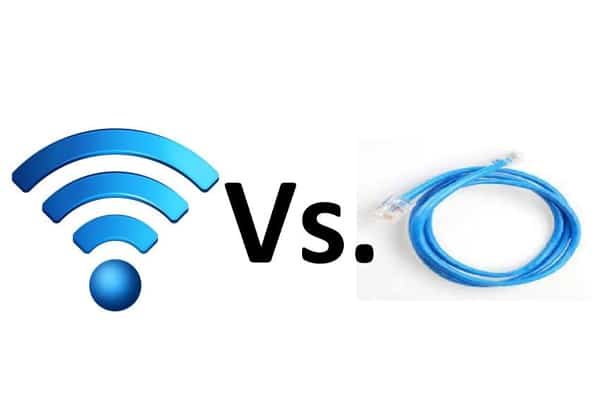
This image is property of www.emcsecurity.com.
Real-Life Examples of Wireless Security System Reliability and Performance
Case study 1: Wireless security system reliability and performance
In a residential setting, homeowner John installed a wireless security system to protect his property. Despite concerns about potential signal interference due to his location in a dense urban area, John found that his wireless system exhibited excellent reliability over time. Through proper sensor placement and a robust wireless signal, he experienced no false alarms or communication failures. The system provided seamless integration with his mobile app, allowing him to monitor his property remotely and receive instant notifications of any security events. Overall, John was impressed with the reliability and performance of his wireless security system.
Case study 2: Wireless security system reliability and performance
In a commercial setting, business owner Sarah opted for a wireless security system to secure her office space. She was initially concerned about the potential for signal interference and the ability of the system to handle the demands of a larger commercial property. However, with the assistance of a professional installer, Sarah strategically placed sensors and signal extenders to optimize coverage and signal strength. The wireless system proved to be reliable and highly responsive, providing real-time updates and efficient integration with her access control system. Sarah was pleased with the reliability and performance of her wireless security system, which exceeded her expectations.
Case study 3: Wireless security system reliability and performance
In a multi-story residential building, the property management company decided to install wireless security systems in each unit. They initially had concerns about the reliability and performance of the wireless systems, particularly due to potential signal interference from neighboring units and the building’s structural components. However, through careful planning and installation, including the use of signal repeaters and optimized sensor placement, the wireless systems proved to be highly reliable and responsive. The property management company was impressed with the performance of the wireless security systems and received positive feedback from residents who appreciated the convenience and effectiveness of the system.
Choosing Between Wireless and Wired Security Systems
Factors to consider when choosing between wireless and wired systems
When deciding between wireless and wired security systems, several factors should be taken into consideration.
One factor is the specific security needs of the property. Consider the layout, size, and characteristics of the property, as well as any specific security concerns. Some properties may benefit from the flexibility and ease of installation offered by wireless systems, while others may require the stability and reliability provided by wired systems.
Budget is another important consideration. Wired systems tend to have higher upfront costs due to the need for professional installation and the purchase of physical cables and equipment. Wireless systems, on the other hand, are generally more affordable upfront but may require ongoing expenses for battery replacements or signal extenders.
The level of maintenance required for each type of system should also be evaluated. Wireless systems require monitoring and maintenance of batteries, while wired systems may need occasional inspections and repairs of physical cables.
Benefits and drawbacks of wireless systems
Wireless systems offer several benefits that make them an attractive option for many homeowners. These benefits include ease of installation, flexibility in sensor placement, and the convenience of remote monitoring. Wireless systems also offer scalability, making it easier to add or adjust sensors and devices as needed. However, wireless systems may be more susceptible to signal interference and require regular battery replacements.
Benefits and drawbacks of wired systems
Wired systems have long been regarded as reliable and offer several benefits. These benefits include stability, resistance to signal interference, and no reliance on batteries. Wired systems also tend to have faster communication and processing times, which can be critical in emergency situations. However, wired systems require professional installation, can be more expensive upfront, and lack the flexibility in sensor placement that wireless systems offer.
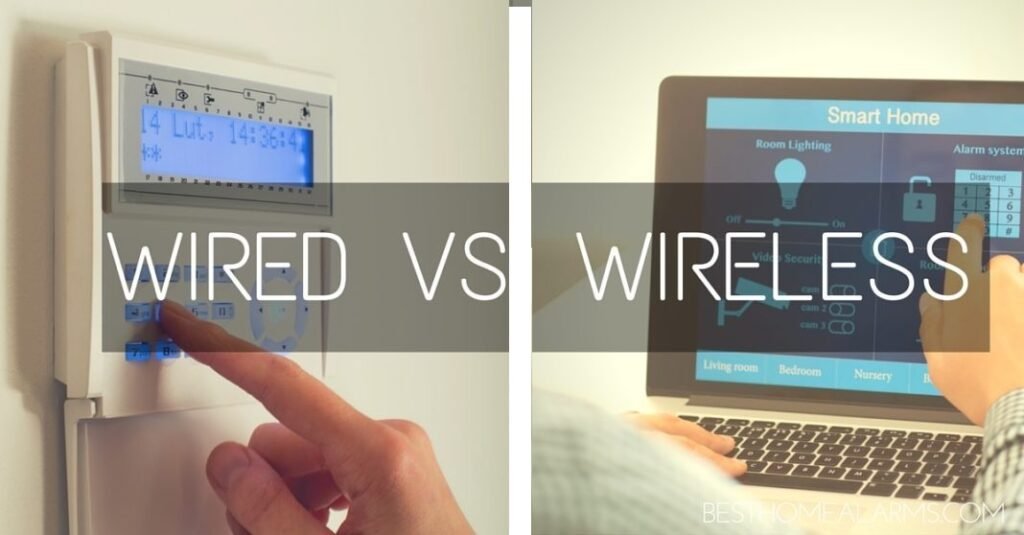
This image is property of www.jimilab.com.
Implementing a Reliable and High-Performing Security System
Tips for implementing a reliable wireless security system
- Ensure a strong and stable wireless signal by placing the control panel and wireless devices in locations with minimal obstructions.
- Optimize sensor placement to maximize signal coverage and minimize gaps in security.
- Regularly monitor the battery levels of wireless devices and replace them as needed to prevent power-related issues.
- Keep the firmware of the wireless system up to date to protect against potential security vulnerabilities.
- Consider using signal extenders or repeaters to improve the range and strength of the wireless signal, especially in larger properties or areas with signal interference.
- Conduct regular testing of the wireless system to identify and address any potential issues before they impact security.
Tips for implementing a high-performing wireless security system
- Choose a wireless system that utilizes advanced wireless communication protocols for faster and more reliable performance.
- Opt for sensors with adjustable sensitivity levels to ensure accurate detection while minimizing false alarms.
- Integrate the wireless security system with other smart home devices, such as smart locks or motion-activated lights, to enhance overall security performance.
- Regularly review and update the security settings and configurations of the wireless system to adapt to changing security needs.
- Invest in a reputable and trusted wireless security system from a reliable manufacturer to ensure high performance and quality.
Best practices for integrating wired and wireless systems
When integrating wired and wireless security systems, certain best practices should be followed:
- Ensure that the wired and wireless systems are compatible and can communicate with each other effectively.
- Coordinate the installation and wiring of both systems with the help of a professional to ensure proper integration and functionality.
- Utilize a centralized control panel or monitoring station that can communicate with both wired and wireless components.
- Regularly test and inspect the integration between the wired and wireless systems to identify and address any potential issues promptly.
- Provide proper training to end-users on how to operate the integrated system effectively and troubleshoot any potential issues.
Conclusion
In conclusion, when comparing wireless and wired security systems in terms of reliability and performance, it is evident that both technologies have their advantages and disadvantages. Wired systems have long been known for their reliability and stability, while wireless systems offer benefits such as ease of installation, flexibility, and remote monitoring.
Advancements in wireless technology have significantly improved the reliability and performance of wireless security systems. With proper planning, installation, and maintenance, wireless systems can provide comparable reliability and performance to wired systems. However, it is important for homeowners to carefully evaluate their specific security needs, budget, and preferences when choosing between wireless and wired systems.
By considering factors such as signal strength, sensor placement, and individual property characteristics, homeowners can make an informed decision that ensures optimal security coverage and meets their performance expectations. Implementing best practices, regularly testing and maintaining the chosen security system, and integrating wired and wireless components effectively can further enhance the reliability and performance of the security system.
In conclusion, both wireless and wired security systems have their strengths and weaknesses, and the choice between the two ultimately depends on individual preferences and priorities. Whether opting for a wireless or wired system, homeowners should prioritize reliability, performance, and ease of use to ensure a seamless and effective security solution for their homes or businesses.

This image is property of www.safewise.com.
